Although I have advocated for simple living, living with purpose, the cozy life, etc. for many years, I’m not a fan of the term “minimalism” at all. To be honest, I find it depressing. I never really took the time to think about why I reject minimalism until recently. Somehow I landed on this article and the author summed up perfectly what it is about minimalism that I dislike.
The Dangers of Minimalism
In Say Yes to Excess! Why Decluttering Can Be Bad for You, Jeannette Kupfermann tells the story of what happened when she asked a minimalist friend to help her clean out her house in anticipation of the company she would be hosting when her daughter was married. She writes:
As my origami dragon – an offering brought proudly home from nursery school by one of my children more than 30 years ago – was thrown in the bin, I knew I was about to lose something irreplaceable: the memory of a milestone in a child’s life. These hoarded items represent the history of our dreams, our loves, our losses. Why should we want to destroy the archaeology of our lives? Nothing says more about us than the possessions we surround ourselves with, and sometimes only we can read their meaning.
I’ve no quarrel with Einstein’s ‘out of clutter find simplicity’ – which I’ve always taken to mean finding patterns amid chaos – but I suspect that the current decluttering obsession reflects something harsher than a search for order in a world increasingly overwhelmed by choice. It’s a rejection of history, an attempt to make everything homogeneous, with everything from diet to furnishings dictated by a small group of lifestyle experts determined to impose one neutral style.
Later she observes:
Imagination versus organisation. Those leaping dolphins on a plastic stand: hideous, chuck it. No, I can’t – it was my mother’s last birthday gift to me. Let it go, we’re always being urged. It belongs to the past. Yet the most fulfilled people acknowledge their past and incorporate it into their lives. I love to go into a home where old photos, medals, china and other memorabilia are on display, as opposed to a neutered place devoid of personal history. Memory is a precious resource: we should cherish it rather than aiming for bare walls and empty spaces.
Of course, the feng-shui experts will tell you that clearing the clutter is like weeding a garden to let the flowers emerge. Clear the decks and you’ll make space to let new things into your life. But they also urge you to get rid of all old love letters, postcards, invitations, birthday cards, bad photos – anything significantly human or individual.
I have to admit that my friend had done a good job: her uncluttered surfaces looked pristine. Yet I hated the emptiness and felt a deep sadness – a sense that part of my soul had been scoured away too.
And then:
As for me, I felt older – as if I’d moved on to the next stage of my life – and, far from being liberated, I felt as if I’d been cut down to size, reduced to someone else’s thinking. I was too drained to do anything that night, but the next day I rescued the origami dragon and reinstated him, along with several other items. This was my personal archive, a record of my history and individuality, and I wasn’t going to let anyone diminish that or me. It’s time we hoarders started to fight back. Less is not always more: sometimes it really is less.
I thought her observations about two things were particularly important.

Minimalism and the Loss of Our Individuality
First, I appreciated her observation about getting rid of the things that are tied to the individual. A vocal portion of our culture seems obsessed with making everyone the same. In trying to make everyone the same, we lose the individual quirks, histories, and more that make us such interesting people.
When I go into someone’s home, I almost always ask about the photos and mementos that are out. They tell me the story of the person’s life and I find it fascinating. A home with nothing personal out and about feels sad to me. It doesn’t feel like a home. It feels empty.
Minimalism and Erasing History
I also thought her observation about erasing history was thought-provoking. We’ve become a culture obsessed with the now and the potential of the future. History is something that is considered negative and embarrassing. People are obsessed – and, yes, I mean obsessed – with pointing out every perceived flaw or problem with the past without taking any big picture perspective into consideration. I think this attitude is spilling over into a rejection of the past when it comes to keeping materials items as well.
There is a steady stream of articles online about how younger generations don’t want to inherit anything material from their parents who are retiring or dying:
- Sorry, Nobody Wants Your Parents’ Stuff
- Aging Parents With Lots of Stuff, and Children Who Don’t Want It
- Boomer parents: ‘One day, this will all be yours.’ Grown children: ‘Noooo!’
They declare that it doesn’t fit their lifestyle and they don’t want to be weighed down by possessions. Obviously that is their choice and they have the freedom to do so. What I think will be interesting to see is what their children and grandchildren think of this in the future. There will be no family history to share. No special letters, pictures, books, antiques, etc. to pass along. Nothing.
Decluttering articles advise you to take pictures of things and then dump them. You don’t need the item to remember it or the person or the event. You can look at the picture and remember it. But it’s not the same.
Taking a picture of a card given to me by a friend now in heaven is not the same thing as holding the card in my hand, seeing her handwriting, and remembering the gracious hospitality she extended to me time and time again. It’s not.
Sure, I could take a picture of the little tea cup my grandmother gave me that sits on the piano next to her photograph and get rid of it, but looking at the picture is not the same as remembering my grandmother each time I sit down at the piano and see it there. If I took pictures of them and stored them on my computer, how often would I see them and be reminded? Almost never.
What Kinds of People Reject Minimalism?
Maybe people with different love languages see material items differently. Even twenty-one years after our wedding, I can tell you which friend or family member gave us which gift that we still use.
Or maybe it is people who love history who understand the value of items and the stories they compel us to tell.
Maybe it is the homebodies who enjoy their cozy nest and being surrounded by things that make them feel happy and peaceful.
If any of these are the case, then the homebodies with the love language of gifts who love history would be especially loathe to part with the items that tell our life story all around us.
When you see this item from my bedroom, what do you see? A fuzzy ultrasound picture?
When I look at it I see my friend and bridesmaid, Amy, who was married seven years after me. We both waited on God for wonderful husbands who He decided we should meet online. (Totally not what you would expect from either of us.) We then had our first babies four months apart. We both had girls. She bought this frame for me and one for herself. You see an ultrasound picture. I see a series of miracles and God working for both me and my friend.
What do you see here? A bunch of dust collectors?
I see a collection of pansy teacups and saucers, primarily purchased for me by people who love me and sought them out in out-of-the-way places before eBay and shopping online. I could go online today and buy a dozen pansy teacups, but not when these were purchased. There were bought by people who made special trips to antique stores “just to check” if they might be able to find a hard-to-find pansy teacup and saucer for their pansy-lover friend/relative/daughter. I see love and thoughtfulness and pretty things. (And the baby’s breath from the first rose David gave me.)
What do you see here? An apple? Two people out in the fall?
I see a high school graduation gift carefully wrapped and shipped from California from a second cousin who has been like an aunt to me. In the picture I see a husband who took one of his rare personal days when he was still in a corporate job so he could spend time with his wife who was lonely to the point of tears after quitting teaching and being at home alone all day in an apartment. I see a representation of a husband who has loved me sacrificially for over twenty-one years.
What do you see here? A Precious Moments figurine?
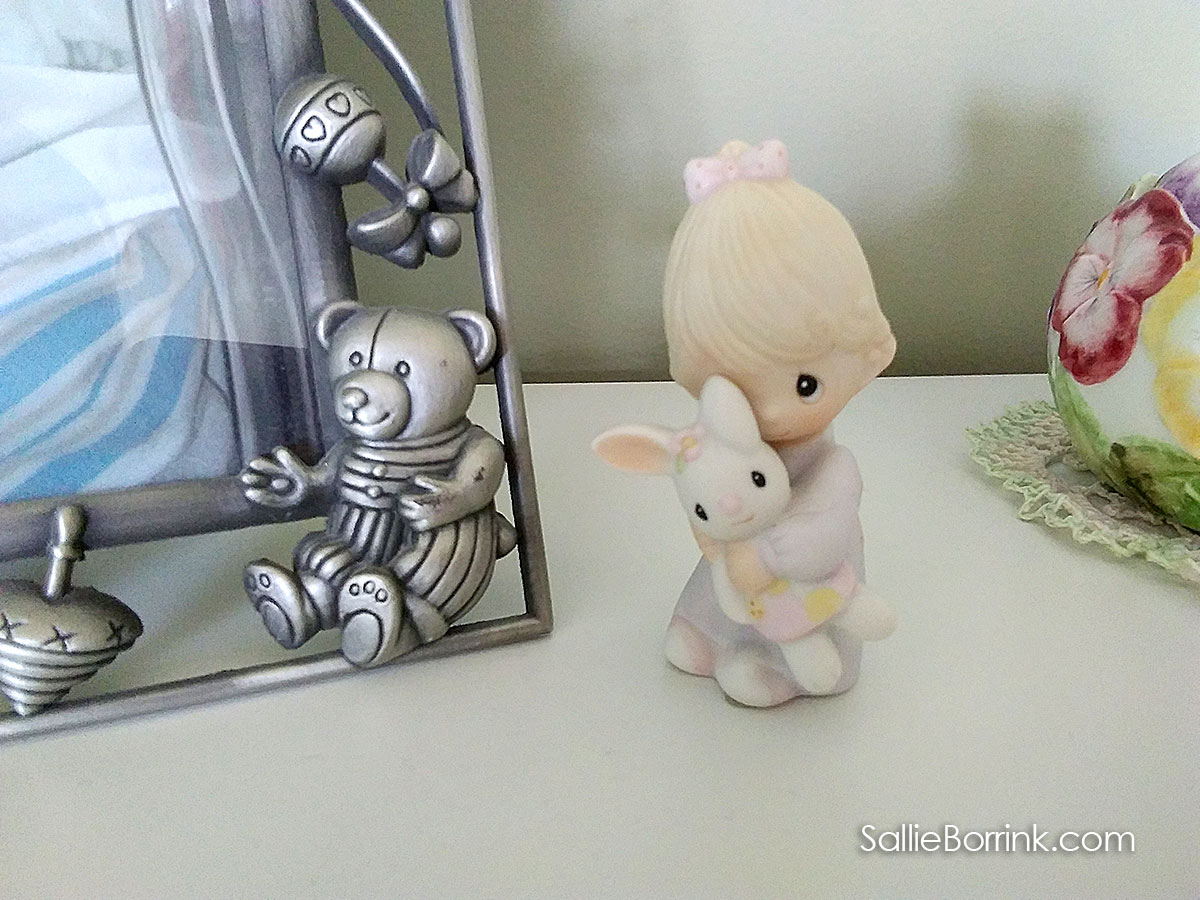 I see a gift from a little girl I tutored who lived across the street from my parents when I still lived at home. Who looked me up on Facebook to connect all these years later.
I see a gift from a little girl I tutored who lived across the street from my parents when I still lived at home. Who looked me up on Facebook to connect all these years later.
What do you see? Outdated furniture, photos, and silk flowers? And a reprehensible doily, according to the minimalist police?
I see my grandmother’s antique dresser that I refinished many years ago and a doily crocheted by my other grandmother. I see a picture of David planting my pansies at our first house the first time we planted them. A job he still does for me twice a year (spring and fall) without fail and out of love. I see the picture we took before we left for Caroline’s two week well baby appointment after she was born. I see a beautiful floral arrangement given to me by my friend, Amy, for my birthday many years ago.
My home is filled with the people I have loved and who have loved me as represented by material things. And all of these things remind me to tell Caroline about the people so they will be real to her as well. My guess is that unless you are a natural storyteller, you won’t tell your children the stories of your family unless you are reminded by the physical presence of items in your home to jog your memory.
Understanding Minimalism
I can already hear some claiming that I don’t understand minimalism. Look, even all minimalists don’t agree on what it is. There are some who would probably say I’m fairly minimalistic in that I’m intentional about what I keep around. There are others who would immediately disqualify me for owning doilies and teacups.
I do know after reading many minimalist blogs and articles that some people are more obsessed with their possessions as minimalists than I am as a cozy living person who enjoys her stuff. One blog that I won’t link to featured a woman who was obsessed with her stuff. Because she only had four bowls if she broke one it was a real problem. Or she only had one of this or one of that so if she lost it or it died it was a real problem. So who has the bigger issues? The person who obsesses over how little she has and how traumatic it is if something happens to it or the person who has plenty and if something breaks she tosses it and moves on with life?
Many minimalists also seem obsessed with their potential. Maybe it’s because I’m at the point in life that I have a pretty good idea of who I am and I like me, that I don’t feel a need to be obsessed with my future potential and how my stuff around me is “holding me back.” Just the opposite.
I’m surrounded by stuff that reminds me of a life well-lived with interesting people, places, and events. Of answered prayers. Of amazing opportunities. When it comes right down to it, I’ve had a wonderful life and I have the things around me to remind me of that. Of course I want to continue to grow and see what the future holds for me. But I’m not obsessed by it or feel a need to “lose” my past self so I can “discover” my future self.
I Embrace My Cozy Living History
So I embrace my cozy living history. I don’t feel compelled to clear everything out so I can live my “best life” or “be free” of materialism. I enjoy and appreciate what I’ve been blessed with no matter how much the self-proclaimed minimalism experts would try to shame me into getting rid of half of what I own. Just like Jeannette Kupfermann, I refuse to be reduced to someone else’s vision of what my life should be.
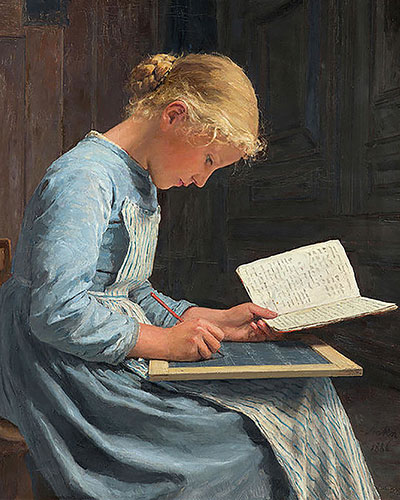

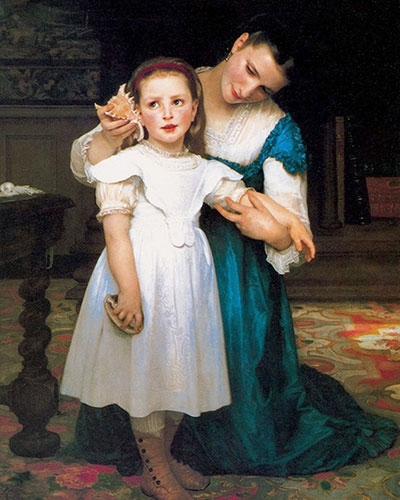

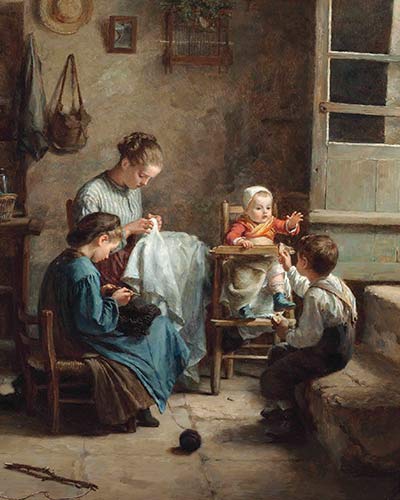
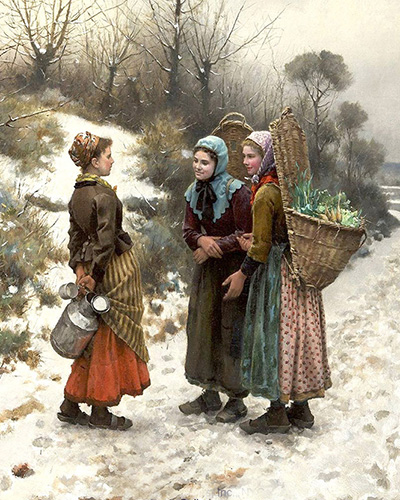

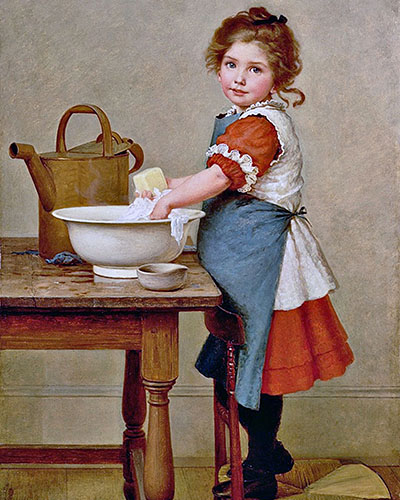

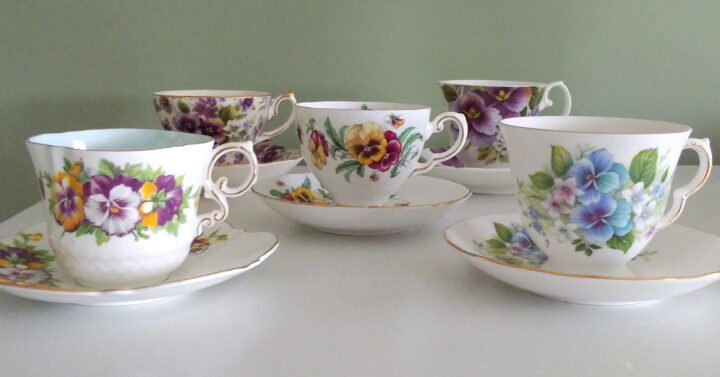
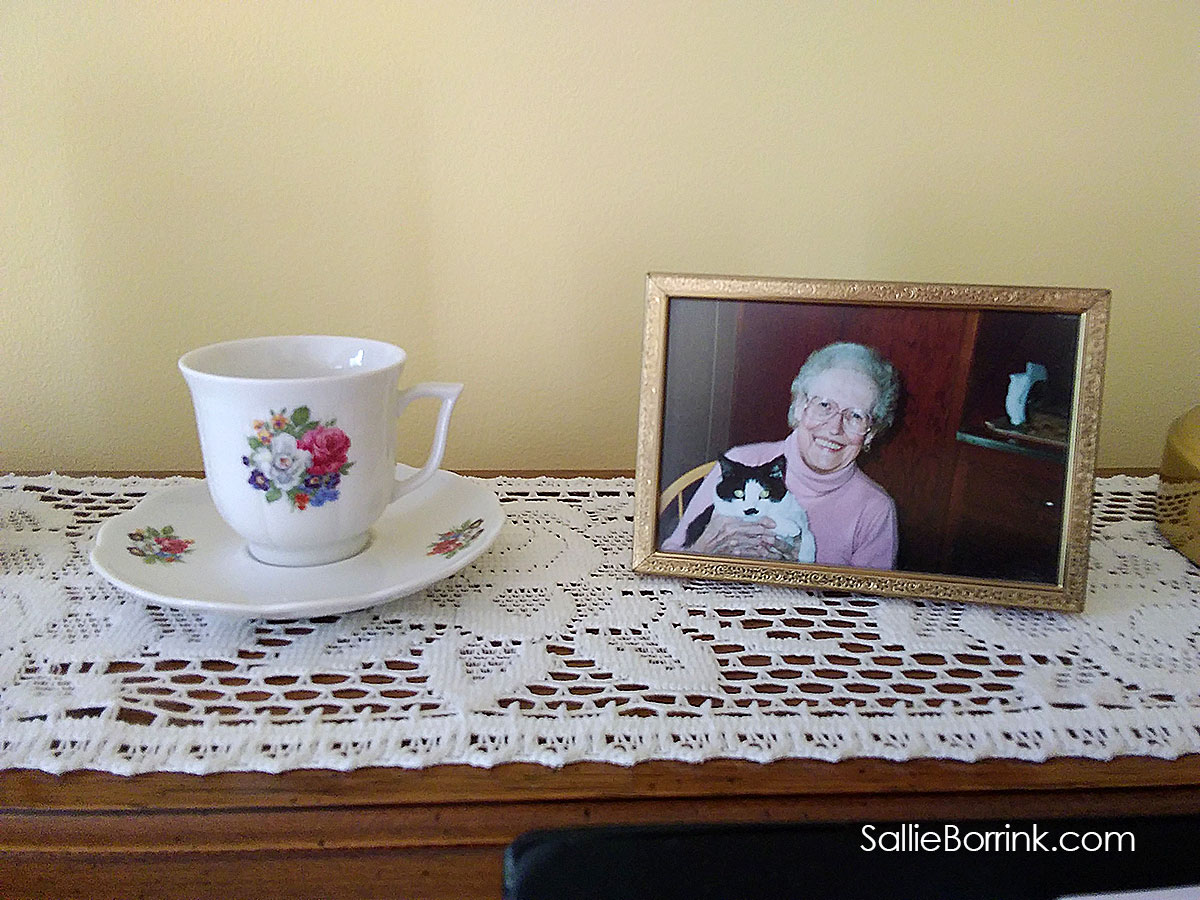
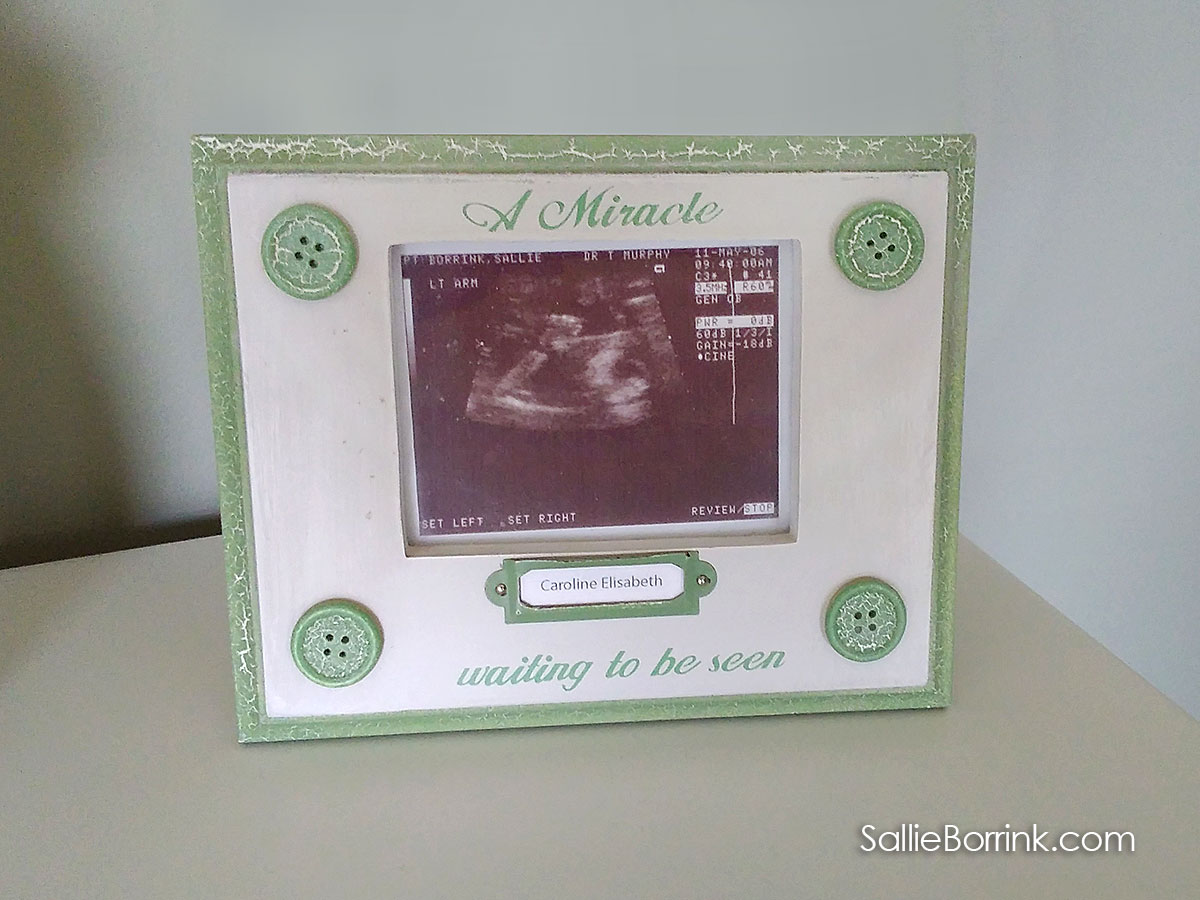
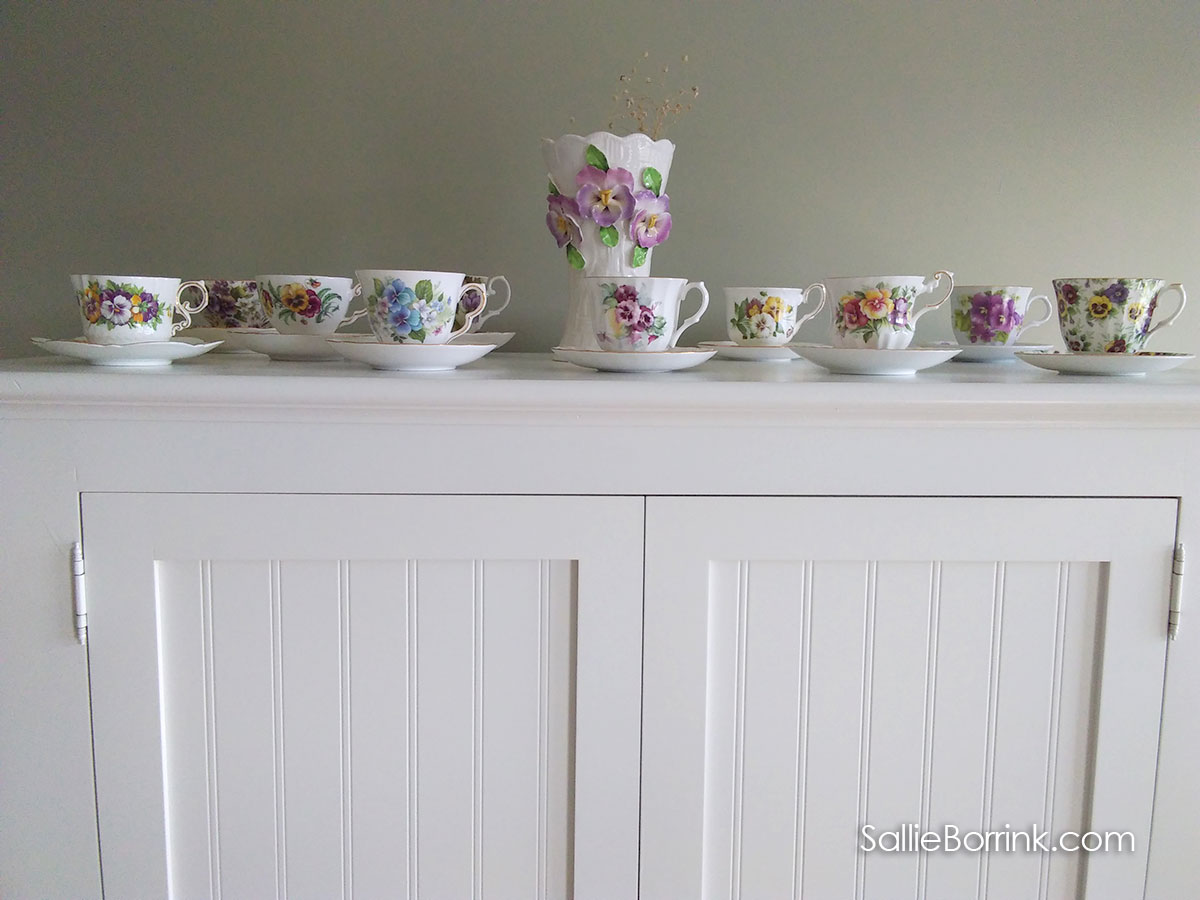
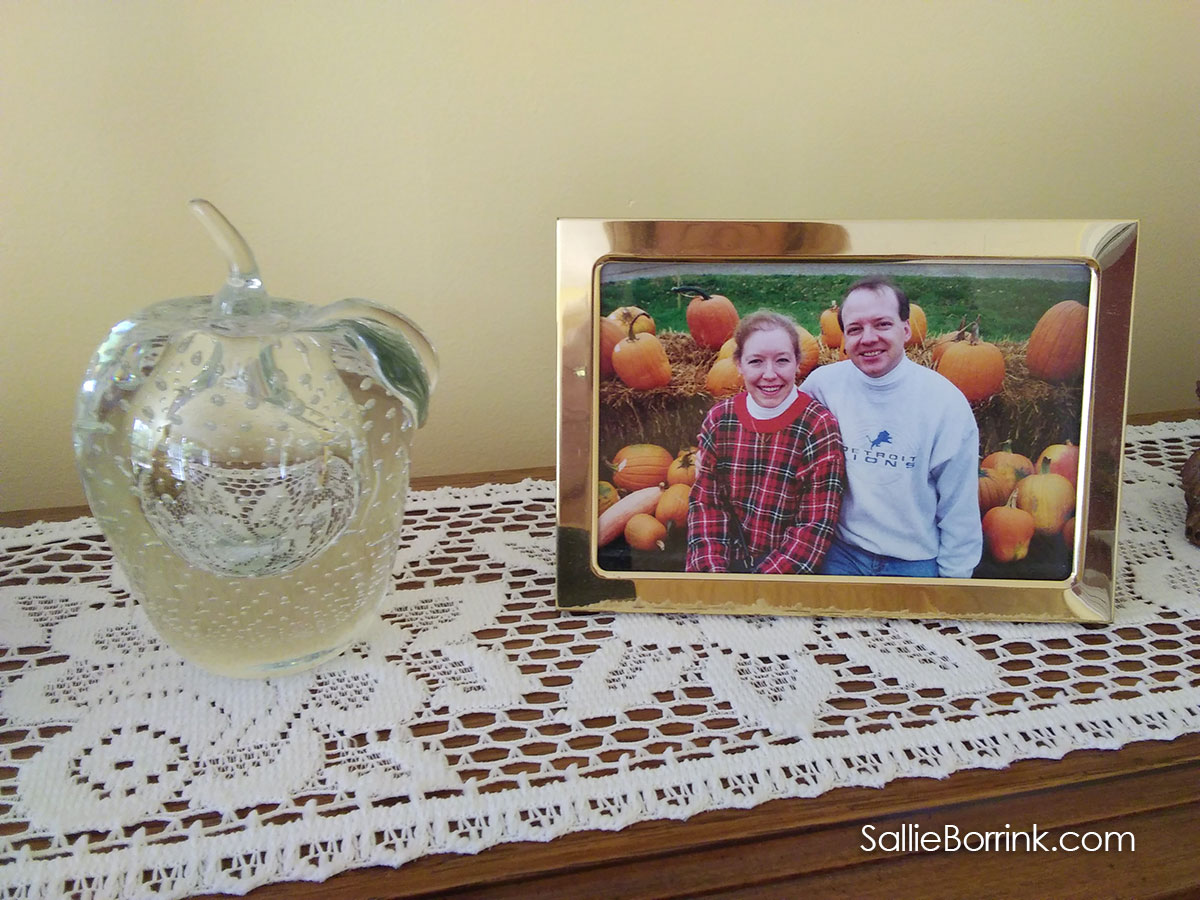
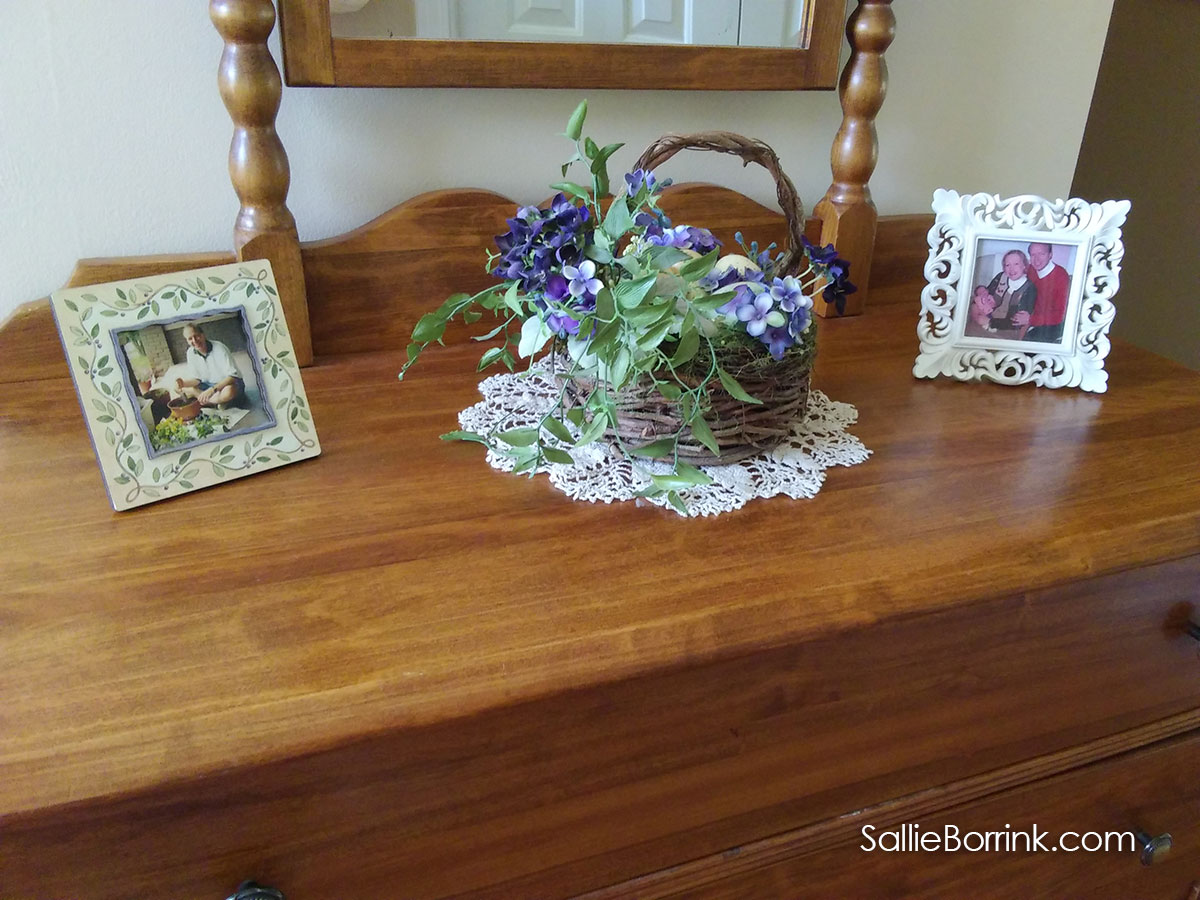
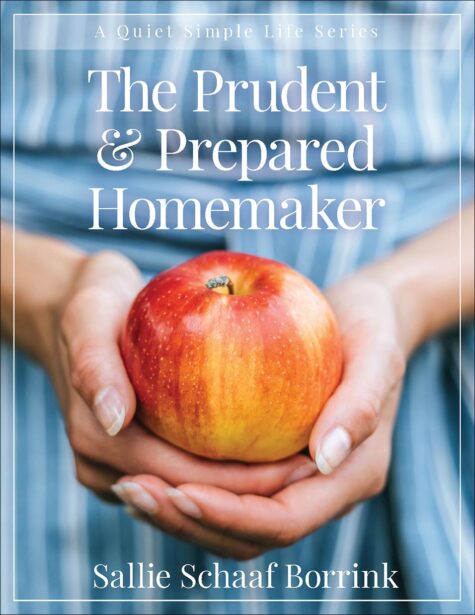
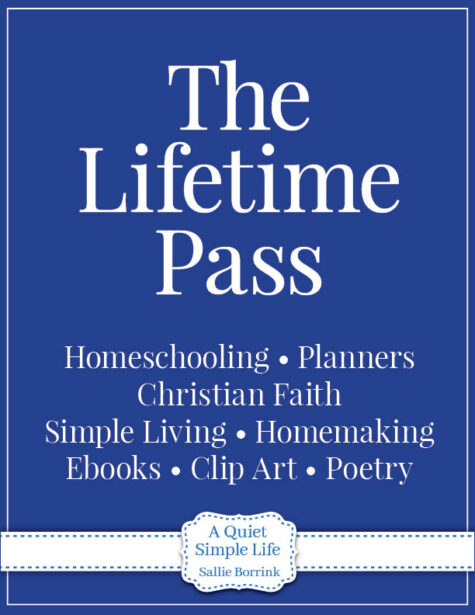
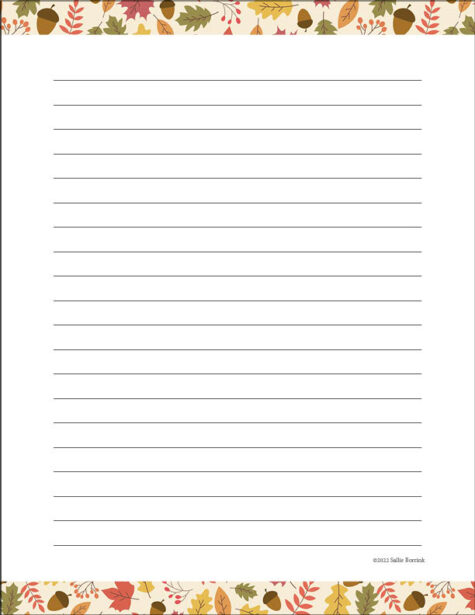
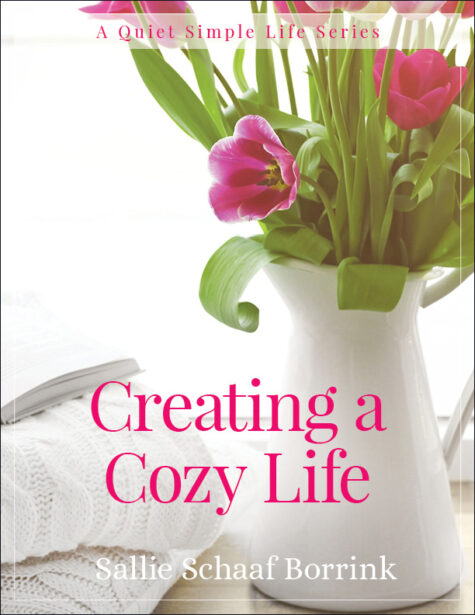
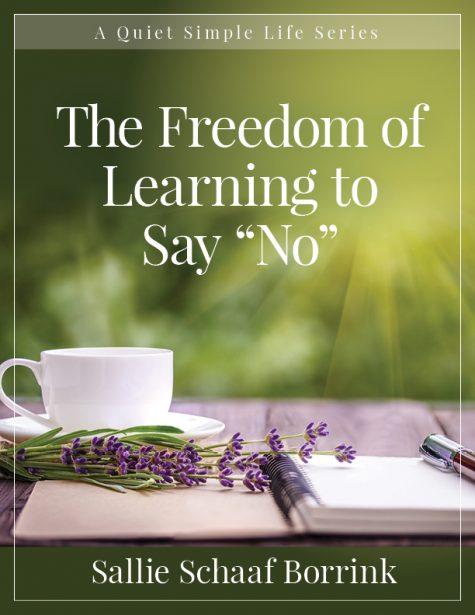





 From My Book Pile – First Edition
From My Book Pile – First Edition
I so agree with this. I love looking around at everything in our home that means something to us. We are surrounded with memories and gifts someone gave us and it feels comfortable and cozy. Thank you for your post!!! : )
Mary S.
Hi Mary!
I’m so glad you enjoyed it. I think there are lots of us who feel this way. 🙂
Sallie
Thanks for sharing! I’ve spent a lot of time researching minimalism, using it as a tool for decluttering. But I feel like I can never relax and accept the space I’m in because I’m always weighing whether something should stay or go (that being said, I’m definitely not a minimalist). I’m now seeking to find a middle ground and this is the first really helpful article I’ve found. I plan on reading the other one you quote.
Thanks again!
Hi Ellie,
Welcome! Thank you for leaving a comment and letting me know the post was helpful. The middle ground is definitely the way to go (in my humble opinion!).
Sallie
The Apartment Therapy guy, Maxwell, says that some people run too “cold” (minimalist) in their homes, and other people run too “warm” (cluttered). Ultra-minimalism has always looked cold, boring, and dead to me; not cozy at all. My own house tends much more toward clutter, and constantly needs culling and editing. Minimalists sometimes provide me with inspiration toward taking action in that area.
There was one time a few years ago where I felt like God was asking to me to let go of most of my books and mementoes and just-in-case-we-need-it-somedays, which I did. Not long after that, my husband was laid off, and we had a baby on the way, yet through His grace we did get through just fine, even without my antique clothes wringer.
There was some family stuff that I was more reluctant to let go, but these were things that were precious only to me, not to anyone else, and they were precious enough that I didn’t need to keep the actual objects to hold onto the memories.
It did leave me with room to discover some new and better things.
Ecclesiastes says something like “a time to keep, and a time to cast away”. So I think there are seasons of gaining and of losing, but certainly minimalism is not something that I want to pursue for its own sake.
Hi Peggy,
Yes, “cold, boring, and dead” is how I would describe it as well. It would depress me to live in such sterile environments.
Even beyond that though is the whole push to get rid of everything every six months. I honestly think many of the minimalists have more issues with their stuff than people who keep a pleasantly full home. It’s like an unhealthy obsession with material things disguised as healthy or something.
As you can tell, I’m still sorting this out, but the whole term minimalism… Something just seems off to me. Still trying to put my finger on it and what is driving it in our society in the big picture.
Intentional instead of minimal. I have many hoarders in my extended family; while I am inclined toward sentimentality, there are many things that don’t even serve that purpose in my home. I hope to find balance soon!
Hi Cristy!
I’m all about intentional, but it seems like a lot of minimalism goes beyond that. Like I said in my comment to Peggy just above yours, there is something about minimalism that bothers me that I can’t put my finger on yet. That seems off or inauthentic or something.
Maybe it’s a socially acceptable way for people to cope with the overwhelm of modern society? Like the people who clean when they are stressed only on a bigger life scale?
Or (dare I say) there’s a worship-like dedication to it? Another god, me thinks. 😉
Yes! Maybe that is it. There is almost a sense of religious devotion to it among some minimalists. (Not all.) It struck me time and again how obsessed minimalists are with their stuff when they are talking about being free from their stuff.
(And I have no idea why your comments and Peggy’s keep going to moderation. You have both commented a zillion times here. I cannot get comments to simply go through. It’s driving me nuts.)
Comfy is good for me, although my comfy isn’t as pretty as yours, Sallie.
Sparce is not. I did sparce when I lived single in NYC. It seemed then definitely a control type issue; “If I own less, I have less I have to move or care for.” (Moving and caring can be difficult things, in NYC, I found.) When I moved west, I had more space, and more time, and less need to control. I wonder if it is geographical location-baseed, too?
Anyway, I have a good Christian friend who says practicing minimalism has helped her order her life better, and have more time for God and others. She blogs about it at http://www.createminimalism.com (be gentle, all. She is also a client of mine 😉 ) It would take an extraordinary amount of time for me to get to the point where I could say the same. Perhaps I’m in denial. I don’t know if it will ever matter that much to me, truth be told. Less is more in my mind only when your family has to make your final arrangments; that seems the best use for minimalism!
But I did love this post. I find very few kind criticisms these days. And your post was definitely kind.
(No matter to me on the moderation issue; I’m so grateful to have a nice place to read, you’d never have to publish a comment of mine, as long as you don’t block my IP!)
I cannot believe your friend donated 550 bags of stuff. She must have had a lot of stuff. If we move a couple of small to medium sized Amazon boxes worth of stuff out at one time I think I’ve done well.
I think that’s the upside to not having much disposable income the past fifteen years. We only buy what we need and can use. Most of what we’ve purchased has been Caroline related (toys, clothes, art supplies, homeschooling, books, etc.) or something we truly needed to replace when something else wore out (shoes, towels, underwear, etc.).
That said, I’m still working through my Getting Rid of 1000 Things
this year (and need to update it for June). But even the things we’ve gotten rid of wouldn’t amount to very many bags.
“I wonder if it is geographical location-based, too?”
I wonder if that has something to do with it as well. For example, if you live in a part of the country where you have a large basement (like most of the upper Midwest) it makes it way easier to hang on to stuff. LOL!
I cannot imagine life without a basement. Truly.
I have to agree with you. I’ve been decluttering for a few months and gotten rid of a lot of things that I had no attachment to. However when it comes to family history and things I’ve inherited, they’re here to stay.
I read an article by a minimalist and he described everything he had in his living room. I thought it sounded horrible. No photos or personal momentous, just basic seating and a tv. That was it! I can’t imagine how cold and impersonal that room looks.
The articles written by some minimalists seem to really try and make you think you’re less than they are. Or that we only have things to impress other people. And how wonderful their life is because they’ve adopted this way of living.
I get rid of things, I’m not a hoarder. But I will never adopt that mentality. I love having things that my ancestors had and loved.
There’s an old consumer segmentation scheme that I refer to sometimes, called VALS 2 (Values and Lifestyles). There are three consumer orientations in it (principles, status, and action), and then there are two tiers that cut across the orientations, separating the consumers who have a lot of money from the consumers who don’t.
In the case of minimalism, it can potentially appeal for a broad band of consumers across the categories: principle-oriented people might take to minimalism on principle, status-oriented people might pursue status by having less clutter, action-oriented people might enjoy the challenge of minimizing their stuff.
Also, higher-resource people can be minimalist in their possessions, and instead spend the money on other things according to their orientation: principle-oriented people might spend money on social or religious causes (or on higher-quality brands), status-oriented people might buy fewer but much more expensive status symbols, action-oriented people might buy more expensive experiences.
So all over the place, there is money to be made on minimalism.
On the lower-resource side, relatively poor people pretending to be minimalist rich people is clearly a trend. Add in frequent moves and tight living spaces, there are two more motivations toward minimalism.
Minimalism being a cult of control is also very true, I think, both on the level of people trying to control their own lives, and of setting people up to be more easily controlled by others.
Add to that pressure from Facebook and other social media to be all-consuming, so that people spend most of their free time online, rather than interacting with their own possessions.
That customer segmentation scheme is very interesting.
“On the lower-resource side, relatively poor people pretending to be minimalist rich people is clearly a trend. ”
That’s an interesting observation. I think this is very true. IKEA makes “minimalism” available to anyone at almost any income level.
“Minimalism being a cult of control is also very true, I think, both on the level of people trying to control their own lives, and of setting people up to be more easily controlled by others.”
I think the setting people up to be more easily controlled by others is VERY true. And this isn’t just about material things, but disconnecting people from their past, etc. There is a huge psychological component to it that I don’t even think a lot of people who embrace minimalism comprehend.
As a culture, we are rapidly disconnecting people from any real attachment to a family, a home, a community, a state, a way of life, etc. I think it makes people more susceptible to all kinds of manipulation.
I wonder if it isn’t possibly that the past generations FEEL more “cozy” by being in an institutional type environment…, due to the fact that the majority were brought up in daycare /preschool from infancy and imprinted on the easily cleaned and non cluttered non personal look. ..I do not like it either…my Grandma’s home held many items with stories , now they live in my home !
Hi Karen,
Yes, and every grandma’s home was a bit different depending on the family’s roots. People still had a lot of connection to their ethnic roots if their family were recent immigrants in the previous generation or two, etc. Home was also much more the center of the world for most people. Even if they left home for a job, military service, etc. they still came “home” to the same place. It’s not that way any longer.
I think it’s really all about balance. Minimalism can be uncaring, unfeeling and cold, as mentioned in this blogpost and some of the comments. On the other hand, excessive clutter can cause feelings of stress and overwhelm, and can prevent people from enjoying their treasured objects because “you can’t see the forest for the trees”. This is especially the case when hoarding is fueled by excessive consumerism.
Hi Claire,
Thank you for your thoughtful comment. I agree that balance is key. Maybe I haven’t found the right minimalism blogs to read. The ones I’ve come across seem to lean heavily toward being anti-stuff and kind of condescending toward people who like “things” in their home. Again, maybe I’m coming at it from a different angle than they are. If someone was into excessive consumerism, I can see how minimalism might be really positive if they feel it was part of what set them free. I don’t come at it from that life experience so minimalism comes off to me in a less positive way. Does that make sense?
Sallie
Yes, absolutely that makes sense. I too am turned off by the way some minimalists are quick to dismiss family heirlooms and items with history/sentimental value. And sometimes the practice seems wasteful, depending on how it’s handled. (By the way, a minimalist would not be happy with my home at all! I wouldn’t say my home is cluttered, and it’s certainly not large, but I have lots of photos and knicknacks on display!)
This is all so true and beautifully written! I don’t love a super cluttered home, i get around it by not buying things. Almost any knick knack I have was a gift or something I inherited from grandparents. My home is wonderfully sentimental and yet I am still living relatively simply. Also I hate the look of carefully organized bookshelves.
Hi Alex,
It sounds like we are similar in how we think about the items in our home! I’m so glad this post resonated with you. Thank you for taking the time to comment. I truly appreciate it.
Sallie
Wait, you hate the look of carefully organized bookshelves? Why? I’m curious!
I have never understood carefully decorated bookshelves with very few books actually on them. Obviously I am a book lover and my shelves runnith over. I am a hoarder who is working on having a cozy home because that is what appeals to me. I am working through the chaos t,oward an orderly and functional home. I have never cared for the motel room look of extreme minimalism. I love the personal family photos and momentos in a house that make it a home. I am trying to free myself of the STUFF that has no emotional connection. Many of you who commented seem to have achieved that point.
Everything you said is so true. Never really thought about the children thing. But you are so right. They don’t seem to want that stuff.
My kids I hope maybe different, cause they have the soul of old people. Lol
I feel you can keep this stuff. I have a few things from my great grandparents. It is stuff I remember them using. I remember the warmth of the love they had.
When they passed it was go in and get what appeals to you. Which that is the way it should be. And not everyone in the family has the same taste.
To me clutter is where you have stuff where you can’t see the beautiful antique table for all the knickknacks placed on it.
To me being a minimalist is when you had a 1,000 canning jars to feed your family and you let go of 900. Cause your family has left but you still enjoy canning. And keep what you need for yourself and maybe a few extras.
Love this story going to keep it on file to look back when I start thinking of throwing everything out.
God bless you lady.
As a Gen Xer, I’m one of the children who didn’t want most of the things from my grandparents and parents. I think the thing many people miss is that we don’t have the SPACE. I’m over 40, don’t own a house, and maybe never will. What am I going to do with antiques and old furniture in a rented 900 sq ft condo?
Also, the stories you tell about gifts from your dear friends are wonderful, but those people aren’t my dear friends. If I take your sentimental items, I won’t have any room for my own gifts from my dear friends.
So it’s not that us kids are evil, heartless, or ungrateful. We simply don’t have room for your keepsakes and our own too. Especially with houses being unattainable for a lot of us.
That doesn’t mean I have no family sentimental items — I have two quilts my grandmother quilted with HER mother, and a large string art piece that belonged to my grandfather. I also have a rosary my dad made for me. But those are things that are functional, meaningful to me, and easy to fit in a small home.
As a Gen Xer, I’m one of those children who “doesn’t want their parent’s and grandparent’s things.” But before you get upset, let me point out one thing you’re overlooking — we don’t have the SPACE!
I’m over 40 and don’t own a home, probably never will. What am I going to do with antiques and old furniture in a rented 900 sq ft condo? I have room for exactly one couch and one recliner. And they have to be a certain size or smaller!
Also, while the stories you told about the gifts given to you by good friends were charming, those people weren’t MY good friends. So they don’t hold the same meaning to me. And if I keep your keepsakes, I won’t have any room to keep the sentimental gifts I get from my own friends.
That doesn’t mean I have no family sentimental items — I have two quilts my grandmother quilted with HER mother, and a large string art piece that belonged to my grandfather. I also have a rosary my dad made for me. But those are things that are functional, meaningful to me, and easy to fit in a small home.
Just offering a different perspective!
A very interesting read! Thank you for so elaborately sharing your perspective – it was insightful.
I consider myself a minimalist but was appalled to read the story about the minimalist friend clearing out the house. It didn’t sound like she took into account the other person’s preferences at all, which is so important! The idea of minimalism is to keep what adds value for you (which I personally believe is also possible in an extended sense – like having plates and extra chairs to accommodate guests – to me selfish minimalism feels very narrow and limiting).
I completely agree that minimalism is too often portrayed in a very bland and uniform manner. The issue is likely compounded by the fact that minimalism is a design philosophy as well as a lifestyle – but the lifestyle has no required look associated with it! Minimalism has the potential to be beautifully diverse. Myself I love colors, and they feature prominently in my space. I wish there was more minimalist content showing that this is also an option.
It’s so sad to me that you — and others you quote — were exposed to such a legalistic concept and method of minimalism. I’m a minimalist, but I have not yet — in almost 65 years of life — removed from my home anything that I love, that holds precious memories, etc., that I later regret removing. Instead, I have removed items that created clutter and did not allow those precious, beloved items to have the attention they deserve and that I want them to have. So instead of throwing out (excuse the pun — perhaps I should have said “rejecting) minimalism, people should not allow others to dictate to them what they should discard. They should instead have enough self-confidence to trust what is their comfort level regarding minimalism and what they want to keep. It’s really that simple!
Well said, Patti! Sallie, you might consider reading Matt Paxton’s book Keep the Memories, Lose the Stuff. He focuses on the stories. If you choose to keep things, let them be things you love and that evoke pleasant precious memories. ♥
This is a well-written article and a lovely “family” of commenters. Has anyone pondered “minimalism” from a Biblical perspective? The “something-isn’t-right” feeling struck me as well when it began trending. My thoughts turned to Abraham and his “get-up-and-go” call. Guess what? – He took all of his “stuff” with him! Wonder how many camel-loads that entailed? And what was that “stuff”? It was God’s blessings in his life. History, memories, identity – yes – but more importantly – The Heavenly Father’s love-gifts of Provision, Comfort, Healing, Encouragement and Tender Generosity. Praise Yehovah!
You are spot on! Amen! Totally agree.
I love your article. I too have gifts from family and friends set out around the house because I enjoy them every day.
Our neighbor’s house looks like a model home to me. Boring!
And they probably think we have too much stuff. So it goes.
Thank you for sharing your heartfelt feelings
I love your article! I think it is possible to hold onto special family items and “not mass produced” things and have it look pretty as far as design. For example, I need something that holds my cooking utensils like spatulas and whisks. I got the nicest crocks and pitchers I could get for the practical need I had anyway. They are older items and look pretty, and are thrift store finds.
My good friend thinks I have too many houseplants. I have about fifty. She very bluntly said my house has a jungle look. And she was not being complimentary. Other people think I have the right number and like the look of them just what they say coming in, how pretty the plants are. . To each her own! I don’t want more, but I don’t want less, either.
I don’t want a design with all style no warmth, but I don’t think warmth is hoarding, either. There is a balance. I think too minimalistic can look bland and sterile, and too much stuff can just be messy piles of not the most special accents. There is definitely a place in our home for my grandmother’s favorite floral cookie jar, but not every little thing she ever had, like items even she long ago wouldn’t have missed that were not special but just “stuff.”.
I do think tossing all the family items for a stylized ” store” look is a big mistake. Also, the “store look” of this time period passes for a different style later. So if you design according to current trends, which tend to lack character of things like your grandma’s cookie jar, then by 5 years later the “in style ” design look could have shifted to something else. And you still don’t have “The Look.”. Worse, you got rid of your grandma’s cookie jar. I would rather have the cookie jar and my houseplants.
There’s a reason why the first minimalists were dudes (single dudes, if I recall correctly).
I was helping my oldest boy (7) declutter his toys, because cleaning his room was like confining him to the gulag. So I asked what he liked most, wrote it down, and I got rid of everything not on the list.
But his poor little eyes filled with tears as I put Buzz in the giveaway. He got it back, as well as those Rockem Sockem robots. They don’t mean much to me, but they sure do him.
Now he plays in his room all the time–those hot wheels, the marble track, his coloring. He is much happier, having found all the pieces to all the things he loves, and having permission to give away stuff he no longer needs, even if he did once.
I found Clutterbug’s videos, and they are much more helpful than minimalist police. My house is not perfect, but we are able to relax, have a cup of tea, play Legos or Play Doh, read old journals, light candles, make bread from scratch, or wrap birthday presents. If your home is not practical for your family, then it’s a motel.
I know this comment is super late, but I just read your article and want to say I agree completely. ‘Things’ can have strong emotional attachments that make you happy when you see or use them. Life is short and I chose happy.
Wish I could send photos of my newly remolded/redcorated French Normandy home…I am a Maximalist and have layered my cosy home in my fav soft pinks, teals and whites. Rewallpapered EVERY room, added handcrafted teal mermaid tail backsplash to my mottled brown granite, wraparound almond cabinets with ceramic pink/gold/ivory pulls, blush velvet stools/chairs, oversized floral teal sofa in my big kitchen, draped lace over white shoes, tucked jeweled trinkets all over the house for the children to find, added Makenzie whimsical reindeer everywhere, antiques mix with traditional and modern elements….SO, so ME!! Elegant, romantic, whimsical French/English COTTAGE, Glam, Coastal design and I get raves. I love the accolades but following my intuition and heart is what is important. Forget trends!
I wish I could see your home too! It sounds wonderful!
I think it depends on what items YOU consider clutter. I am very creative, I have a lot of hobbies and I travelled a lot so I have a lot of things from all those. But they make me happy. I once moved with only 7 boxes (!). I was very unhappy with my lack of ability to play an instrument on a whim or embroider, or paint – because I didn’t have the supplies. I actually get rid mostly of “basics” when I declutter – I don’t need a boring grey t-shirt because I have 22 special t-shirts from special occasions that mean something to me. I don’t need a nice high-quality beige blanket because I have several that I quilted myself. I don’t want white bowls I want the ones my mom gave me with bears on them. I can still live with less stuff by purposely not buying basics, capsule wardrobe stuff, all that because if I have a wild collection of special stuff and nothing else its just as good and makes me happy. I declutter a lot because I accumulate a lot. For example, if I have read a book and know I won’t read it again I immediately get rid of it. I have to because I read a hundred books a year, my home would be a library. But that way I am left with all the random things that make me happy. I admire my friend who has cups that all match and a white clean space. But I would live in that space for 10 minutes before I would start painting a wall (with all the pain I keep on hand). I am still learning to accept that I just need to clean up better. But removing my joy is not the answer.
I could have written this article!!! Although it is from 2018, I still hold these exact sentiments today and always have. My home is not hoarded, but cozy. There’s a story behind almost everything on display. Yes…teacups, doilies crocheted by my great grandmother, gift items with meanings behind them, and on it goes. My kitchen has gadgets from the past, a few baking dishes from women I loved, hand-written recipes. I also have quilts made by my grandmother and aunt. Now I’ve taken up quilting myself to carry on the legacy. I have old cards and thank-you notes. Once I went through a time of not “feeling” important and the old thank-you notes lifted me right out of the funk. I have Bibles and studies, books and music that remind me of specific and special moments. Also, I saved some toys from my boys that have lovingly been played with by my grandchildren. I saved all the pieces and cared for them. Our spare bedroom has what my oldest grandson calls “The Mt. Rushmore” of Mimi’s house. Lined up on the bed are 4 well-loved stuffed animals. One was mine, one belonged to my oldest son, one from my youngest son, and one from my grandson who left it here for safe keeping. These were the “friends” that went everywhere and slept with their children each night. My home is not cluttered but it shows our history. I also have a curio table that displays some of both my grandmothers’ jewelry, gloves, hat pins and trinkets, along with hand-crocheted handkerchiefs . What a shame to not have these things. I noticed that Cottagecore and Grannycore or Granny chic is trending. Well….I am right back in style! Thank you for this article. We are kindred spirits. God bless.